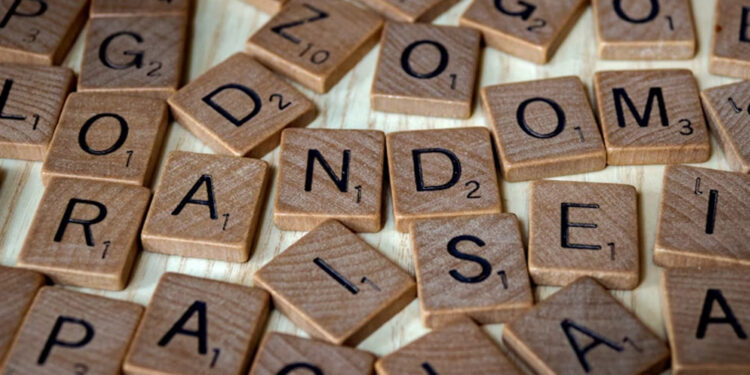Have you ever seen a strange word like jiflbdnvw4p pop up in a link or on a screen? At first glance, it looks like someone smashed their keyboard. But guess what? That random-looking mix of letters and a number might actually serve a real purpose.
In today’s article, we’ll explore what jiflbdnvw4p could mean, where it shows up, why it matters, and whether it’s something to worry about. By the end, you’ll understand exactly why these strange strings exist — and what to do when you see one.
Let’s break it down together, in the simplest way possible.
Where People First See jiflbdnvw4p
You may spot jiflbdnvw4p when you’re browsing a website or clicking a link in an app. It usually hides at the end of a long web address or shows up in the background of certain tools and platforms.
For example:
-
A Google ad might end in …?track=jiflbdnvw4p
-
A file name might include it like image-jiflbdnvw4p.jpg
-
A weird-looking link in an email could contain it
Most people just scroll past it without a second thought. But if you’ve ever paused and wondered what it means, you’re not alone.
What Does jiflbdnvw4p Actually Mean?
To put it simply — jiflbdnvw4p doesn’t really “mean” anything to a human. It’s not a word, acronym, or message. But to a computer system? It can mean a lot.
Here’s the deal:
-
It’s likely a randomly generated string made by a system or software
-
It helps computers label, track, or identify something, like a user session or a file
-
It acts like a name tag — not for people, but for data
So while we may not read it like a sentence, the system knows exactly what to do with it.
Is jiflbdnvw4p a Code or a Token?
Yes — it could very well be what developers call a token or an ID string.
Let’s say a user logs into an app. Instead of using their name or email in the system, the app gives them a random ID like jiflbdnvw4p. This:
-
Keeps things secure
-
Helps prevent hackers from guessing real information
-
Makes it easier to organize data without showing personal info
Think of it like a hotel room key card. It doesn’t say your name on it, but it knows exactly what room you belong to.
Could jiflbdnvw4p Be Encrypted?
Some people might wonder, “Is this string hiding a secret message?” It’s a good question.
But here’s the answer: probably not.
-
It doesn’t follow common encryption styles like Base64, hex, or SHA256
-
It doesn’t decode into anything useful using basic tools
-
It’s not meant to be readable — not even by machines in that way
It’s more likely just obfuscated, meaning it’s made to look confusing on purpose. It hides meaning, not to trick you, but to protect what’s behind it.
Why jiflbdnvw4p Looks So Strange
Let’s be honest — this string looks weird. But that weirdness is on purpose.
Developers and digital systems love randomness. It helps:
-
Make sure each string is unique
-
Prevent overlapping sessions or file names
-
Avoid security issues from repeated patterns
Imagine if two files had the same name — chaos, right? That’s why we end up with something like jiflbdnvw4p. It’s messy to us, but clean and useful for computers.
jiflbdnvw4p and Online Tracking
Ever clicked on a long link and saw a mess of letters at the end? That’s not a mistake. It’s tracking in action.
Here’s how it works:
-
Websites add strings like jiflbdnvw4p to track how users move across pages
-
It helps with ads, analytics, and user experience
-
Businesses can use that info to improve websites or show better ads
So if you see it on a shopping site or blog, don’t be alarmed. It’s not spying on you personally — just tracking general behavior to make the site smarter.
Is jiflbdnvw4p Safe or Harmful?
Many people ask, “Is jiflbdnvw4p dangerous?” The short answer is — no, not by itself.
This string is just a bunch of letters and numbers. On its own, it can’t harm your phone, laptop, or data. But what matters is where that string leads. If it’s part of a safe website or trusted app, it’s fine. But if it’s in a strange email or a shady site, you should be careful.
A good rule is: don’t click on anything you don’t trust. Even if the string looks harmless, always check the full link. If something feels off, it’s better not to open it.
Does jiflbdnvw4p Show Up in Apps?
Yes, absolutely. Many mobile apps and online platforms use strings like jiflbdnvw4p all the time — but you don’t usually see them.
These strings help:
-
Save your progress in a game
-
Keep your account safe while you’re logged in
-
Remember what you last viewed in a store app
You might only notice them when an app crashes, or if you’re using a tool that shows background data. But they’re always there, quietly doing their job behind the scenes.
Developers Use jiflbdnvw4p-Type Strings Daily
If you asked a developer about jiflbdnvw4p, they would probably smile and say, “Yep, I’ve used hundreds of those.”
Here’s why:
-
Developers need unique labels for files, sessions, and users
-
These random strings are perfect for that
-
They reduce the chance of mixing up users or data
Think about a huge website like YouTube or Amazon. Millions of people are doing things at the same time. Systems use strings like jiflbdnvw4p to keep everything organized and running smoothly.
The Role of AI in Creating Strings Like jiflbdnvw4p
In today’s world, AI is everywhere — and yes, even AI helps create strings like jiflbdnvw4p.
AI tools often:
-
Generate random IDs to label files or folders
-
Create session codes for websites or chatbots
-
Help sort data faster with unique strings
As AI grows smarter, these strings might look even stranger. But their job stays the same: to help systems understand, learn, and manage things better.
jiflbdnvw4p and Your Privacy
Here’s something important — jiflbdnvw4p can actually protect your privacy.
Instead of using your name, email, or phone number, websites often give your session a code like jiflbdnvw4p. This helps:
-
Keep your real info hidden
-
Make sure your data is safe from leaks
-
Let the system know it’s “you” — without showing who you are
So, while the string looks random to you, it’s a smart way to protect your identity.
Bottom-Line
Let’s answer this clearly: most of the time, no.
You don’t need to panic when you see jiflbdnvw4p in a link or a file. It’s probably just part of how the site or app works. But if the link looks sketchy, don’t click it — not because of jiflbdnvw4p, but because of where it might lead.
So stay smart:
-
Trust links from safe places
-
Don’t share strange strings if they’re part of your account or session
-
When in doubt, just ask or avoid
You may also read: srcampbell89













